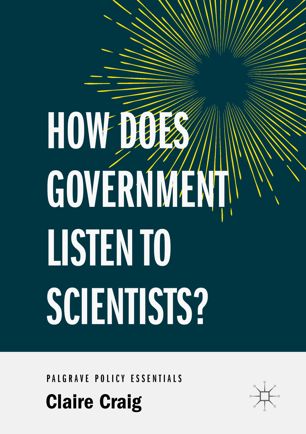

Most ebook files are in PDF format, so you can easily read them using various software such as Foxit Reader or directly on the Google Chrome browser.
Some ebook files are released by publishers in other formats such as .awz, .mobi, .epub, .fb2, etc. You may need to install specific software to read these formats on mobile/PC, such as Calibre.
Please read the tutorial at this link. https://ebooknice.com/page/post?id=faq
We offer FREE conversion to the popular formats you request; however, this may take some time. Therefore, right after payment, please email us, and we will try to provide the service as quickly as possible.
For some exceptional file formats or broken links (if any), please refrain from opening any disputes. Instead, email us first, and we will try to assist within a maximum of 6 hours.
EbookNice Team

Status:
Available0.0
0 reviewsThis Palgrave Policy Essential draws together recent developments in the field of science in government, policy and public debate. Practice and academic insights from a wide variety of fields have both moved on in the last decade and this book provides a consolidated survey of the relatively well established but highly scattered set of insights about the provision of deeply technical expertise in policy making (models of climate or disease, risk, Artificial Intelligence and ethics, and so on). It goes on to link this to emerging ideas about futures thinking, public engagement, narrative, and the role of values and sentiment alongside the place of scientific and scholarly insights in public decision-making and debate. The book offers an accessible overview aimed at practitioners; policy-makers looking to understand how to work with researchers, researchers looking to work with policy-makers, and the increasing numbers and types of “brokers” - people working at the interface, in science advice, public engagement and communication of science, and in expert support to decision-making in the public and private sectors. In addition to outlining recent insights and placing them in the established frameworks of authors such as Pielke and Jasanoff, the book also brings in relevant areas less traditionally associated with the subject but of increasing importance, such as modelling, futures and narrative.